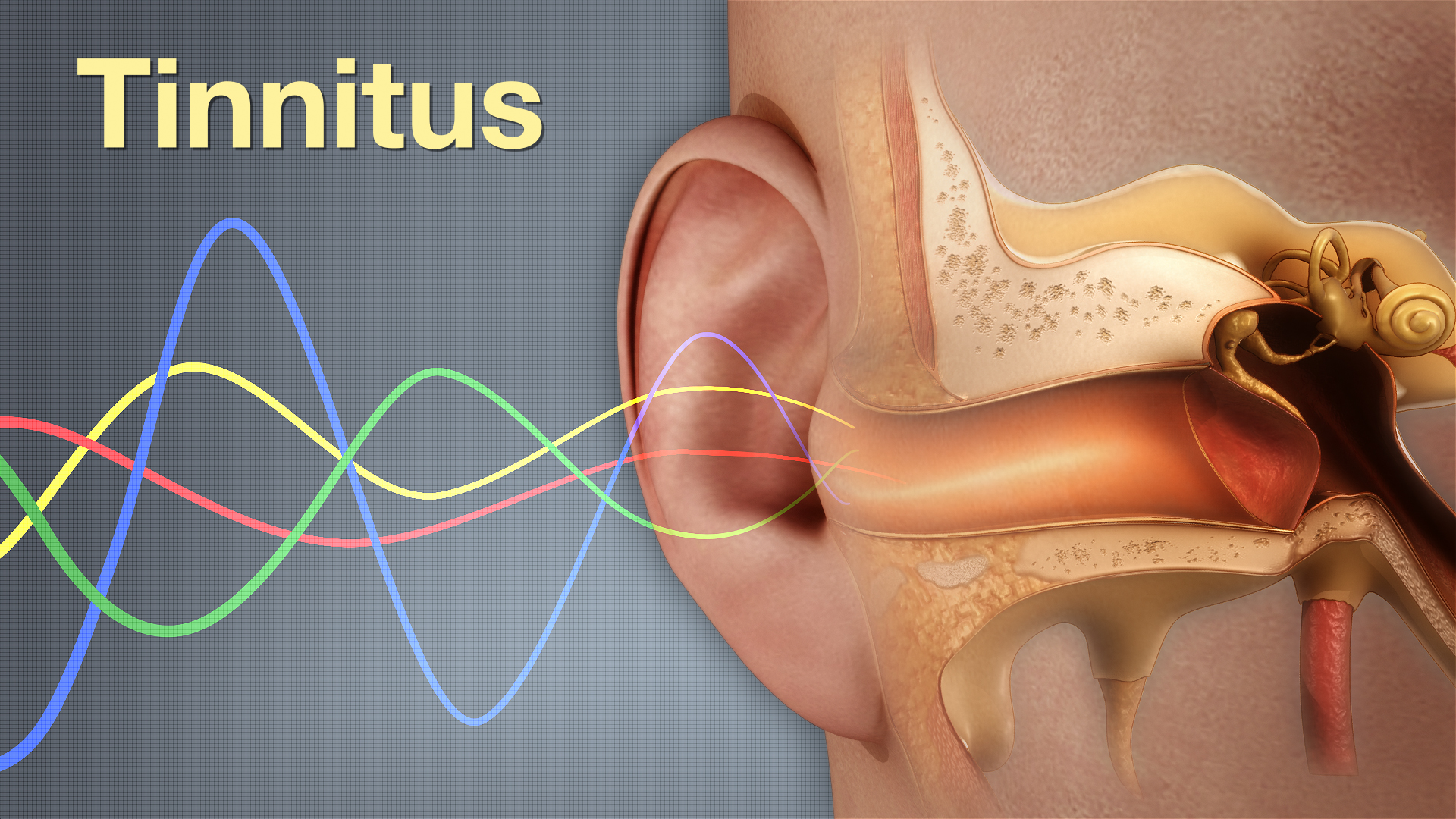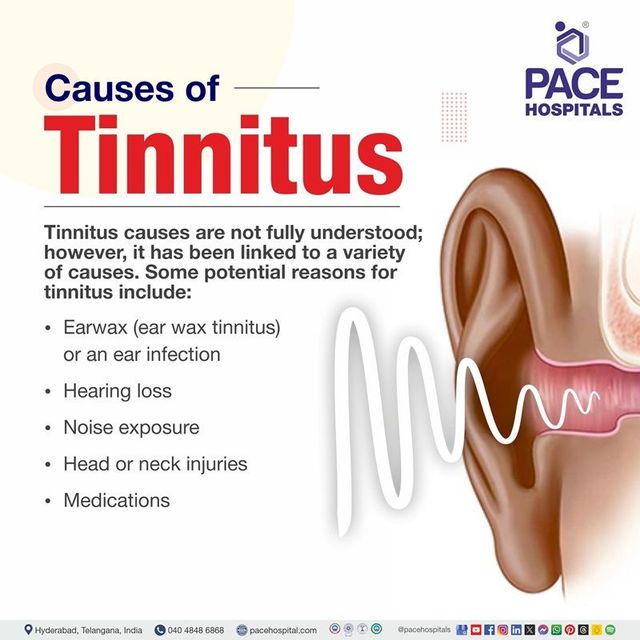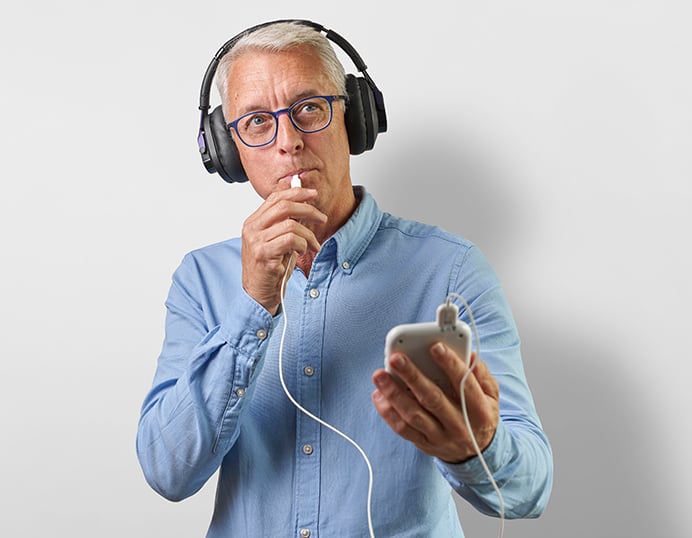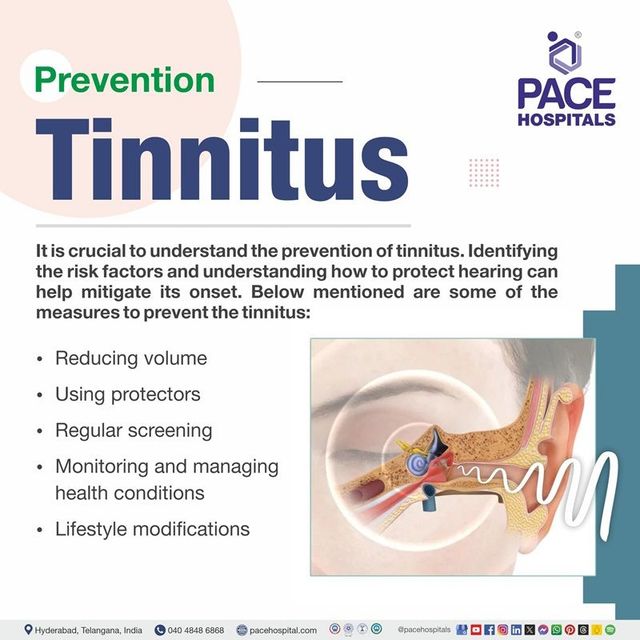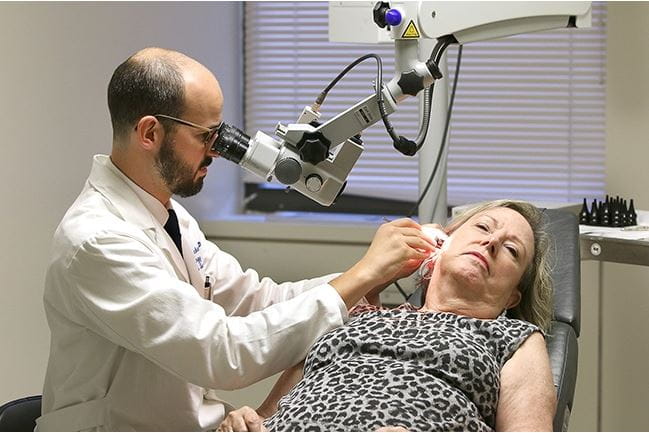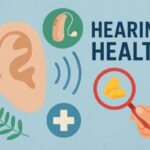Article At-A-Glance
- Tinnitus affects approximately 50 million Americans and can be managed through sound therapy, stress reduction, and lifestyle modifications
- Proper diagnosis is crucial for effective tinnitus management and should include comprehensive hearing tests and medical history assessment
- Natural relief strategies like white noise machines, meditation, and dietary changes can provide significant symptom reduction for many sufferers
- Protecting your hearing from loud noises is essential in preventing tinnitus from developing or worsening
- Technological solutions including specialized apps and masking devices can offer personalized relief options when traditional methods fall short
If you’re experiencing that persistent ringing, buzzing, or hissing in your ears, you’re not alone. In-ear tinnitus affects millions worldwide, often creating a frustrating soundtrack that only you can hear. While finding complete relief can be challenging, understanding the condition is your first step toward effective management.
At AudioHealth Solutions, we’ve helped countless individuals find relief from tinnitus symptoms through evidence-based approaches. Tinnitus may not be curable in most cases, but with the right strategies, many people significantly reduce its impact on their daily lives. The key is identifying what works for your specific situation.
Living with tinnitus doesn’t mean surrendering to a lifetime of discomfort. From natural remedies to cutting-edge technologies, numerous options exist to help quiet those unwanted sounds. This guide will walk you through proven relief methods and explain when professional intervention might be necessary.
What In-Ear Tinnitus Really Feels Like
“Tinnitus shown and explained using …” from www.scientificanimations.com and used with no modifications.
Tinnitus isn’t simply “ringing in the ears” as many people describe it. For some, it’s a high-pitched whine, while others experience buzzing, roaring, clicking, hissing, or humming sounds. The intensity can vary from barely noticeable to overwhelming, and the sound may be present in one ear, both ears, or seem to come from inside the head. This phantom noise can be constant or intermittent, temporary or chronic. For those seeking relief, over-the-counter treatments may offer some solutions.
Many tinnitus sufferers report that their symptoms intensify during quiet moments, especially at night when trying to sleep. The perception of sound without external stimuli can trigger anxiety, depression, and sleep disturbances, creating a vicious cycle where stress amplifies tinnitus and tinnitus increases stress. Understanding this relationship is crucial for effective management.
Beyond the auditory aspects, tinnitus can manifest with physical sensations like fullness in the ears or sensitivity to certain sounds. Some people even experience hyperacusis—where everyday sounds become painfully loud. The subjective nature of tinnitus makes each person’s experience unique, which is why personalized approaches to relief are essential.
Common Causes Behind Your Ear Ringing
“Tinnitus – Types, Causes, Symptoms …” from www.pacehospital.com and used with no modifications.
Tinnitus isn’t a disease itself but a symptom of various underlying conditions. Identifying the root cause can help determine the most effective treatment approach. While some causes can be addressed directly, others may require management strategies to minimize symptoms.
Our ears contain delicate structures that can be damaged through various mechanisms. When these structures are compromised, the brain may compensate by generating phantom sounds. Understanding what’s triggering your tinnitus is crucial for finding appropriate relief.
Hearing Loss and Aging
Age-related hearing loss (presbycusis) is among the most common causes of tinnitus. As we age, the tiny hair cells in our inner ear that transmit sound signals to the brain naturally deteriorate. When these cells are damaged, they can send random electrical impulses to the brain, which interprets them as sound—creating tinnitus.
The connection between hearing loss and tinnitus is so strong that approximately 90% of tinnitus patients also have some degree of hearing loss. Even mild hearing loss that might go unnoticed can trigger tinnitus symptoms. Addressing the underlying hearing loss often provides substantial tinnitus relief.
Noise Exposure Damage
Exposure to loud noise remains one of the most preventable causes of tinnitus. Whether it’s a one-time acoustic trauma (like attending a concert without ear protection) or continuous exposure (working in noisy environments), loud sounds can permanently damage the auditory system. The delicate hair cells in the inner ear are particularly vulnerable to noise-induced damage.
Musicians, construction workers, military personnel, and factory workers face higher risks of developing noise-induced tinnitus. Once these hair cells are damaged, they cannot regenerate, making prevention through proper hearing protection absolutely essential. Even recreational activities like shooting sports or listening to headphones at high volumes can cause lasting damage.
2. Stress Reduction Practices
Stress is a known amplifier of tinnitus symptoms, creating a frustrating cycle where tinnitus causes stress, and stress makes tinnitus more noticeable. Breaking this cycle through dedicated stress management can significantly reduce the perceived intensity of ear ringing. Practices like progressive muscle relaxation, deep breathing exercises, and regular physical activity can lower cortisol levels and reduce the body’s stress response, indirectly helping to manage tinnitus.
3. Dietary Changes That Help
What you eat can have a surprising impact on your tinnitus symptoms. Many sufferers report worsened symptoms after consuming caffeine, alcohol, excessive salt, or artificial sweeteners. These substances can affect blood pressure and fluid regulation in the inner ear, potentially increasing tinnitus intensity.
Consider adopting an anti-inflammatory diet rich in omega-3 fatty acids, antioxidants, and essential nutrients. Foods like fatty fish, berries, leafy greens, and whole grains may help reduce inflammation throughout the body, including the auditory system. Some people find relief by tracking their food intake and identifying personal trigger foods that exacerbate their symptoms. For more insights, explore common choices and expert insights on tinnitus relief.
4. Sleep Improvement Methods
Tinnitus often creates a vicious cycle with sleep disturbances—poor sleep worsens tinnitus, and tinnitus makes it harder to sleep. Creating an optimal sleep environment can help break this pattern. Consider using a white noise machine or fan to mask tinnitus sounds, establish a consistent sleep schedule, and limit screen time before bed to signal your brain that it’s time to rest.
Cognitive techniques like bedtime visualization can also prove effective. Rather than fighting against tinnitus sounds, practice accepting their presence while focusing your mind on pleasant, relaxing imagery. Some people find relief with specially designed pillows that provide gentle sound therapy through embedded speakers, making falling asleep more manageable even with active tinnitus.
5. Exercise for Tinnitus Management
Regular physical activity doesn’t directly silence tinnitus, but it delivers powerful indirect benefits that can reduce symptom impact. Exercise increases blood flow throughout the body, including to the ears, potentially improving their function. It also triggers the release of endorphins—natural mood elevators that can help counteract the anxiety and depression commonly associated with chronic tinnitus.
Aim for at least 30 minutes of moderate exercise most days of the week. Activities like walking, swimming, or cycling are excellent options that provide cardiovascular benefits without excessive noise exposure. Just be cautious with extremely vigorous exercise, as some people report temporary tinnitus spikes following intense workouts due to changes in blood pressure.
6. Mindfulness and Meditation
Mindfulness practices train your brain to relate differently to tinnitus sounds, reducing their emotional impact. Regular meditation helps develop the skill of observing sensations without judgment or reaction, allowing you to acknowledge tinnitus without becoming distressed by it. This cognitive shift can dramatically reduce tinnitus-related suffering, even when the actual sound remains unchanged.
For beginners, guided meditations specifically designed for tinnitus sufferers provide structured support. Over time, many practitioners report that tinnitus becomes less intrusive as they learn to direct their attention elsewhere without fighting against the sound. This acceptance-based approach has shown promising results in multiple clinical studies.
- Body scan meditation: Systematically bringing attention to different body parts
- Loving-kindness meditation: Developing compassion for yourself and your condition
- Breath-focused meditation: Using breath as an anchor for attention
- Sound-based meditation: Working directly with awareness of tinnitus and other sounds
- Walking meditation: Combining mindful movement with present-moment awareness
Even five minutes of daily practice can begin to rewire how your brain processes tinnitus signals. Consistency matters more than duration—brief daily sessions yield better results than occasional longer practices.
7. Herbal Supplements Worth Trying
Several herbal preparations have shown potential benefits for tinnitus sufferers, though research remains limited. Ginkgo biloba, with its circulation-enhancing properties, has received the most scientific attention. Some studies suggest it may improve blood flow to the inner ear and provide antioxidant protection, potentially reducing tinnitus intensity for some individuals. Other supplements that warrant consideration include zinc (particularly for those with deficiency), magnesium, and B vitamins.
Always consult with a healthcare provider before beginning any supplement regimen, as these products can interact with medications and aren’t subject to the same regulatory oversight as pharmaceuticals. Quality and potency vary widely between manufacturers, so choose reputable brands tested by independent laboratories. While supplements shouldn’t replace conventional care, they may offer complementary support as part of a comprehensive tinnitus management plan.
Medical Treatments When Natural Methods Aren’t Enough
“Best Hospital for Tinnitus Treatment in …” from www.pacehospital.com and used with no modifications.
When lifestyle modifications and natural remedies provide insufficient relief, medical interventions deserve consideration. Professional treatments often combine multiple approaches tailored to your specific tinnitus profile. An audiologist or ENT specialist can help determine which options might offer the greatest benefit based on your hearing status, tinnitus characteristics, and overall health picture. For more insights on relief strategies, consider exploring sound therapy as a treatment option.
Hearing Aids and Their Benefits
For the many tinnitus sufferers with concurrent hearing loss, hearing aids often provide dual benefits. By amplifying external sounds, they help mask tinnitus while simultaneously addressing the underlying hearing deficit. Modern hearing aids frequently include built-in sound therapy features specifically designed for tinnitus management, allowing for customized sound enrichment throughout the day.
Cognitive Behavioral Therapy
Cognitive Behavioral Therapy (CBT) addresses the emotional and psychological aspects of tinnitus rather than attempting to reduce the actual sound. This structured therapeutic approach helps identify and modify negative thought patterns and behaviors that amplify tinnitus distress. Patients learn practical coping strategies, relaxation techniques, and cognitive restructuring methods to change their relationship with tinnitus symptoms.
Research consistently demonstrates CBT’s effectiveness for tinnitus-related distress, with benefits often persisting long after treatment concludes. Unlike many treatments targeting the physical aspects of tinnitus, CBT works equally well regardless of tinnitus duration or intensity, making it particularly valuable for those with persistent symptoms.
Tinnitus Retraining Therapy
Tinnitus Retraining Therapy (TRT) combines directive counseling with sound therapy to retrain how the brain processes tinnitus signals. This neurophysiological approach targets the auditory, attentional, and emotional systems involved in tinnitus perception. Through specialized counseling sessions, patients gain a deeper understanding of their auditory system and how habituation can naturally occur over time.
The sound therapy component of TRT uses low-level, neutral sounds to reduce the contrast between tinnitus and background silence, making the tinnitus less noticeable to the brain. Though requiring commitment over 12-24 months, TRT has shown impressive success rates, with approximately 80% of patients reporting significant improvement in tinnitus distress and awareness.
Technological Solutions for In-Ear Relief
“Lenire ® – Tinnitus Treatment Using …” from www.lenire.com and used with no modifications.
Technology offers increasingly sophisticated options for tinnitus management beyond traditional treatments. These digital solutions provide personalized sound therapy that can be adjusted to match your specific tinnitus profile and listening preferences. Many patients find technological approaches particularly helpful because they offer on-demand relief throughout the day.
Tinnitus Masking Devices
Specialized tinnitus maskers generate pleasant sounds that effectively distract the brain from tinnitus perception. Unlike generic white noise machines, these devices create customized sound profiles specifically calibrated to match and mask your unique tinnitus frequency. Some are worn like hearing aids, while others take the form of small tabletop units or even specialized earbuds designed for tinnitus relief.
The most advanced masking systems allow practitioners to perform “sound matching” where they identify the precise frequency and volume of your tinnitus, then create a customized masking sound to provide optimal relief. This personalized approach often proves more effective than generic sound therapy, especially for those with tonal or single-frequency tinnitus.
Patient Experience: “After struggling with a high-pitched ringing for years, my audiologist helped me try a customized masking device. The relief was almost immediate. Having a sound that precisely counters my specific tinnitus frequency has given me back my focus during work hours and peaceful sleep at night.”
For people who can’t afford specialized masking devices, even simple earbuds with appropriate sound therapy apps can provide significant relief. The key is consistency—regular use helps retrain the brain’s response to tinnitus signals over time.
Apps Designed for Tinnitus Management
Smartphone apps dedicated to tinnitus management have revolutionized accessible care options. These digital tools offer features like customizable sound libraries, tinnitus tracking capabilities, guided relaxation exercises, and even cognitive behavioral therapy elements. Many allow you to create personalized soundscapes by combining multiple sound elements—like rainfall, wind, and low-frequency tones—to find your optimal masking combination.
Leading tinnitus apps include frequency-matching tools where you can adjust sounds until they closely match your tinnitus, creating more effective masking. Some also incorporate gamification elements to make tinnitus management more engaging, which can be particularly helpful for maintaining long-term consistency with your relief program.
White Noise Machines and Sleep Aids
For many tinnitus sufferers, nighttime brings heightened awareness of symptoms when environmental sounds diminish. Dedicated white noise machines provide consistent background sound that masks tinnitus during these critical quiet hours. Beyond basic white noise, these devices often offer variety with pink noise, brown noise, nature sounds, and ambient environmental recordings. For more on how these sounds can provide relief, explore tinnitus treatment sound therapy.
Sleep-specific models include features like auto-shutoff timers, gradual volume reduction, and memory functions that recall your preferred settings. Some integrate with smart home systems, allowing voice-controlled operation when tinnitus flares disturb your sleep. For those who share a bedroom, models with directional speakers or pillow speakers provide targeted sound therapy without disturbing partners. For more information on tinnitus evaluations, you can visit Advanced Hearing Docs.
Preventing Tinnitus from Getting Worse
“Tinnitus – Types, Causes, Symptoms …” from www.pacehospital.com and used with no modifications.
While finding relief for existing tinnitus is important, preventing it from worsening deserves equal attention. Tinnitus often progresses gradually, with symptoms intensifying when protective measures are neglected. By implementing preventive strategies, you can often maintain your current tinnitus level rather than experiencing escalating symptoms over time.
Noise Protection Strategies
Protecting your ears from further damage is absolutely essential for preventing tinnitus progression. Even if your tinnitus originated from causes other than noise exposure, additional acoustic trauma can exacerbate symptoms. Always wear appropriate hearing protection in noisy environments, whether it’s a concert, sporting event, or when using power tools or lawn equipment.
| Noise Level (dB) | Examples | Protection Needed |
|---|---|---|
| Below 75 dB | Normal conversation, dishwasher | Safe for extended periods |
| 75-85 dB | City traffic, noisy restaurant | Safe for limited time; consider protection |
| 85-95 dB | Power lawn mower, motorcycle | Protection recommended |
| 95-110 dB | Chainsaw, rock concert | Protection required; limit exposure time |
| Above 110 dB | Sirens, firearms, jet engine | Double protection (earplugs + earmuffs) |
Consider investing in custom-molded musicians’ earplugs that reduce volume while preserving sound quality if you frequently attend concerts or play instruments. For workplace exposure, consult with occupational health specialists to ensure you’re using adequate protection for your specific noise environment.
Be mindful of everyday noise exposure as well. Keep headphone volume below 60% of maximum, and follow the 60/60 rule—listen at no more than 60% volume for no more than 60 minutes at a time. Even brief exposures to extremely loud sounds can trigger tinnitus flare-ups or cause permanent damage.
Regular Hearing Checkups
Scheduling annual hearing evaluations allows for early detection of changes that might influence your tinnitus. These assessments provide objective measurements of your hearing function and can identify deterioration before it becomes severe enough to noticeably worsen tinnitus. Regular monitoring also helps your audiologist adjust treatment approaches based on changing hearing status, ensuring your tinnitus management plan remains effective over time.
Foods and Substances to Avoid
Certain dietary elements can trigger or intensify tinnitus symptoms in susceptible individuals. Common culprits include caffeine, alcohol, excessive salt, and MSG, which may affect blood flow and neural activity in the auditory system. Tracking your consumption alongside symptom intensity can help identify your personal triggers. Consider keeping a food diary for 2-3 weeks, noting tinnitus severity alongside what you’ve consumed, to recognize patterns and make informed dietary modifications.
When to Seek Immediate Medical Help
“Tinnitus Care Medical Services At MUSC …” from muschealth.org and used with no modifications.
While most tinnitus cases represent benign conditions that can be managed conservatively, certain presentations warrant urgent medical attention. Sudden-onset tinnitus, especially when accompanied by significant hearing loss, vertigo, or other neurological symptoms, requires prompt evaluation. These situations may indicate potentially serious underlying conditions that need immediate intervention.
Pulsatile tinnitus—where the sound pulses in rhythm with your heartbeat—should trigger immediate medical consultation, particularly when it develops suddenly. This specific type of tinnitus sometimes indicates vascular abnormalities that may require intervention. Similarly, tinnitus that appears after head or neck trauma needs thorough evaluation to rule out structural damage.
Any tinnitus accompanied by severe dizziness, facial weakness, significant hearing changes, or discharge from the ear represents a medical emergency. These combinations of symptoms can indicate conditions like Meniere’s disease, acoustic neuroma, or even stroke, all requiring prompt medical assessment and treatment.
- Sudden onset of severe tinnitus, especially in one ear only
- Tinnitus with sudden hearing loss
- Pulsatile tinnitus (rhythmic sounds matching your heartbeat)
- Tinnitus with severe dizziness or balance problems
- Tinnitus following head trauma
- Tinnitus with ear pain, pressure, or discharge
Don’t hesitate to use emergency services if you experience these warning signs. Early intervention for underlying conditions often leads to better outcomes and may prevent permanent damage to your auditory system. For more information on pulsatile tinnitus, read about why you might hear your heartbeat in your ear.
Red Flags That Require Attention
Beyond emergency situations, certain tinnitus characteristics should prompt medical evaluation even if they don’t constitute immediate emergencies. Tinnitus that consistently interferes with sleep or concentration despite basic management techniques deserves professional assessment. Likewise, tinnitus that causes significant emotional distress, including anxiety or depression, indicates the need for comprehensive evaluation and potentially mental health support. Any noticeable progression in tinnitus intensity, quality, or associated symptoms over time should trigger a follow-up appointment with your healthcare provider. For more insights, learn about the signs that tinnitus is going away and expert insights on recovery.
Finding the Right Specialist
Navigating the healthcare system to find appropriate tinnitus care can prove challenging. Start with an otolaryngologist (ENT doctor) for medical evaluation of potential underlying causes, then consider consulting an audiologist with specialized tinnitus management training. For cases involving significant psychological distress, a psychologist experienced in tinnitus-focused cognitive behavioral therapy can provide valuable support. Many academic medical centers now offer multidisciplinary tinnitus clinics where these specialists collaborate to provide comprehensive care tailored to your specific needs.
Frequently Asked Questions
Living with tinnitus generates many questions about causes, treatments, and expectations for relief. Below are evidence-based answers to the most common inquiries we receive from tinnitus patients. Remember that while these general principles apply to most cases, individual experiences with tinnitus can vary significantly based on underlying causes and personal factors.
Can tinnitus go away completely on its own?
Temporary tinnitus caused by short-term triggers like exposure to loud noise, earwax blockage, or certain medications often resolves spontaneously within hours to days once the underlying cause is removed. However, chronic tinnitus lasting longer than three months rarely disappears completely without intervention. That said, the brain’s natural habituation process means many people experience diminished awareness of their tinnitus over time, even without treatment. Approximately 25-30% of cases show significant improvement over 1-2 years as the brain gradually adapts to and filters out the unwanted sound.
Is tinnitus always a sign of hearing loss?
While approximately 90% of chronic tinnitus cases occur alongside some degree of hearing loss, tinnitus can exist with normal hearing test results. Even in these cases, however, sophisticated testing often reveals subtle damage to hair cells or neural pathways that standard audiograms don’t detect. This “hidden hearing loss” may involve reduced function in specific frequency ranges or impaired processing of complex sounds while preserving basic tone detection.
Research Insight: Recent studies using advanced electrophysiological testing have shown that many tinnitus patients with “normal” clinical hearing tests actually show evidence of cochlear synaptopathy—damage to the connections between hair cells and auditory nerve fibers that doesn’t affect threshold measurements but impairs signal processing, especially in noisy environments.
When tinnitus occurs with completely normal auditory function, it may result from issues in central auditory processing pathways rather than peripheral ear structures. Stress, TMJ disorders, certain medications, and vascular abnormalities can all trigger tinnitus without directly causing hearing loss. For those seeking relief, sound therapy strategies may offer beneficial insights.
Regular hearing assessments remain valuable for all tinnitus sufferers, as they establish baselines and track changes that might influence management approaches. Even when hearing tests show normal results, protecting your hearing from further damage is crucial for preventing tinnitus progression. For additional insights, explore expert perspectives on tinnitus treatment and relief strategies.
How effective are over-the-counter tinnitus supplements?
The evidence for most over-the-counter tinnitus supplements remains limited and inconsistent. Products containing ginkgo biloba, zinc, and certain B vitamins have shown modest benefits in some small studies, but larger, well-controlled trials typically show results comparable to placebo effects. Individual responses vary widely, with some users reporting significant relief while others experience no benefit. Before investing in supplements, consult with a healthcare provider who can review potential interactions with medications and help monitor for any beneficial or adverse effects.
Can certain foods or drinks make tinnitus worse?
Dietary triggers vary significantly between individuals, but common culprits include caffeine, alcohol, excessive sodium, artificial sweeteners (especially aspartame), and MSG. These substances can affect blood pressure, fluid regulation, and neural excitability in ways that potentially exacerbate tinnitus. The relationship between diet and tinnitus often involves dose-dependency—moderate consumption may cause no problems, while larger amounts trigger noticeable symptom increases. For more insights on managing tinnitus, explore expert insights on relief strategies.
Creating a two-week elimination diet, removing all potential trigger foods then gradually reintroducing them while monitoring symptoms, often proves more revealing than general dietary guidelines. This personalized approach helps identify your specific sensitivities rather than unnecessarily restricting your diet based on general recommendations.
Why does my tinnitus seem worse at night?
Clinical Observation: Approximately 72% of tinnitus patients report increased awareness of their symptoms at bedtime and during the night. This heightened perception often contributes to sleep disturbances, which can further amplify tinnitus in a self-perpetuating cycle.
Nighttime tinnitus intensification typically results from reduced environmental sound competition rather than actual changes in tinnitus generation. During daytime activities, background noises naturally mask tinnitus, but this auditory distraction disappears in quiet bedrooms. Additionally, lying down can slightly increase pressure in the ear canal and blood vessels, potentially affecting tinnitus perception in some individuals.
Psychological factors also contribute significantly. When external distractions diminish at night, attention naturally turns inward, making tinnitus more noticeable. The anxiety about potential sleep difficulties can trigger stress responses that actually increase tinnitus intensity through neurological mechanisms involving the autonomic nervous system.
Creating a gentle sound environment in your bedroom with white noise machines, fans, or specialized tinnitus apps can provide sufficient auditory masking without disturbing sleep. Some people benefit from pillow speakers or headband-style sleep headphones that deliver calming sounds directly to the ears without disturbing partners. Pre-bedtime relaxation routines incorporating mindfulness meditation or gentle stretching can also reduce the stress-related amplification of nighttime tinnitus.
Finding effective tinnitus relief often requires patience and willingness to try multiple approaches. What works varies considerably between individuals, so don’t be discouraged if your first attempts provide limited benefits. By combining sound therapy, stress management, lifestyle modifications, and when necessary, professional interventions, most people achieve significant improvements in their tinnitus experience over time.

